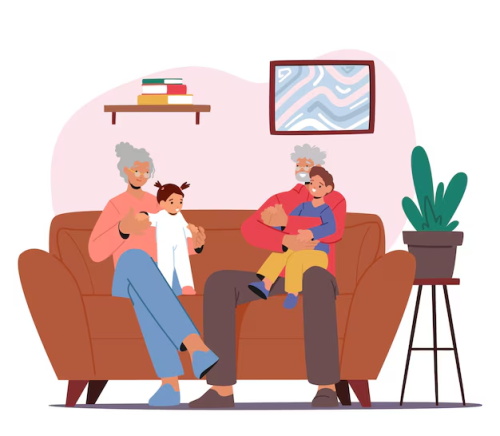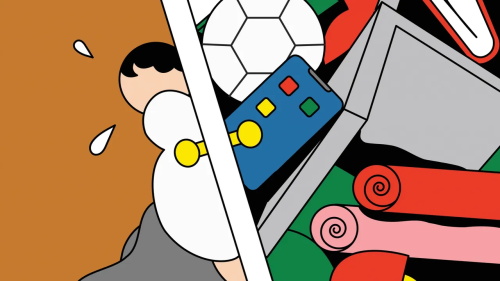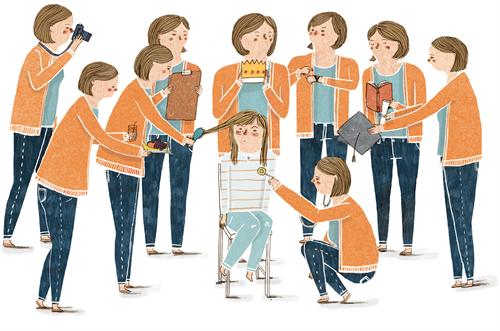Why More Parents Are Saying No to Grandparent Babysitting

In today’s fast-paced society, many young parents are overwhelmed by the pressures of work and finances, leaving them with little time to care for their children. As a seemingly practical solution, many turn to their own parents—the child’s grandparents—for help. After all, they raised children before, they’re experienced, and they’re trustworthy. However, what appears to be a reasonable arrangement often hides deep-rooted tensions. More and more parents are choosing to say no to grandparent babysitting—not out of ingratitude, but due to conflicting parenting philosophies and shifting cultural values.
The Clash Between Traditional and Modern Parenting
There’s no denying that grandparents possess a wealth of life experience when it comes to raising children. They offer unconditional love and have long been the backbone of many families. Yet, the world has changed, and so have the expectations of parenting. Today’s parents are guided by scientific, psychological, and research-backed child-rearing principles, while many grandparents continue to rely on instinct and tradition.
Young parents often find themselves at odds with their elders. They may be practicing “positive discipline” or trying to teach children the importance of delayed gratification, only to have grandparents undo their efforts with beliefs like, “As long as the child isn’t crying, everything’s fine,” or “Just make sure they’re fed and clothed.” Modern parenting emphasizes emotional communication and mental well-being, while traditional thinking prioritizes obedience and order. This creates confusion and inconsistency in a child’s upbringing. For instance, after painstakingly teaching a child to eat independently, a grandparent might revert to spoon-feeding just to “make things easier.”
Differences in Educational Methods: Rules, Freedom, and Discipline
Many grandparents believe in the old adage “spare the rod, spoil the child,” whereas modern parenting promotes encouragement and guidance. Today’s parents value internal motivation and seek to raise children who are self-disciplined out of respect, not fear.
There are also stark differences in how early education, emotional development, and mental health are prioritized. Grandparents tend to focus on physical health, basic manners, and survival skills, while often overlooking emotional intelligence, social development, and self-regulation. They may find it unnecessary—or even absurd—to calmly reason with a toddler having a tantrum instead of simply scolding them.
Social Background and the Generational Information Gap
At the heart of this intergenerational conflict is a divergence in lived experiences. Grandparents came of age in times of material scarcity and were taught to prioritize practicality. Raising children meant ensuring they were fed, safe, and well-behaved. In contrast, today’s parents have grown up in an information-rich, digital world. They emphasize emotional expression, psychological health, and individuality.
Young parents are constantly exposed to the latest child development research and often integrate modern tools—like educational apps, smart toys, and online courses—into their parenting routines. To some grandparents, these are unfamiliar, even unnecessary gadgets. What they see as “fussing,” parents see as thoughtful planning.
Traditional parenting wisdom, passed down orally and based on experience, may still hold value. However, in today’s ever-changing world, some of it has become outdated. Skills like social competence, digital literacy, and emotional regulation can’t be taught with a “this is how we raised you” mindset.
The New Solution: Professional Childcare and Co-Parenting Models
Given how difficult it can be to bridge the generational gap, many young families are turning to professional childcare centers as an alternative. These institutions offer more than just supervision—they provide structured environments that nurture children’s daily routines, interpersonal skills, and cognitive development.
For instance, daycare centers often implement structured schedules to help children develop a consistent biological clock. Group activities and role-playing games are used to enhance collaboration, communication, and empathy—areas where traditional home care may fall short. During sensitive developmental periods, the scientific and systematic approach of professional childcare can compensate for the limitations of home-based caregiving.
Of course, this doesn’t mean grandparents are no longer needed. Their affection and presence remain invaluable. Many families are now exploring co-parenting models, where grandparents continue to participate in childcare, but with clear boundaries and defined roles. For example, grandparents may handle daily routines, while parents take the lead on discipline, education, and values. Open communication is key to preventing misunderstandings and avoiding the “you raise your way, I raise mine” chaos.
The Ideal Family Education: Balancing Love and Rules
At its core, the tension between grandparents and parents is not about right or wrong, but about adapting to a new era. Different parenting approaches can coexist—they don’t have to conflict. Both generations share the same goal: to raise happy, healthy children.
Intergenerational caregiving is, essentially, two generations protecting the same child in different ways. Rather than constantly correcting each other, families can build collaborative parenting plans. Let the grandparent's warmth and patience be the emotional anchor, and the parent’s structure and reason be the guiding light. True success in family education comes from balancing love with discipline, so children grow up feeling secure, respected, and capable of managing themselves.
In the end, when parents refuse grandparent babysitting, it’s not because they don’t trust or appreciate them. It’s because they seek a more thoughtful, science-informed, and harmonious way to raise their children. Saying “no” isn’t shutting grandparents out—it’s about redefining roles, improving communication, and creating a better, shared parenting journey.







